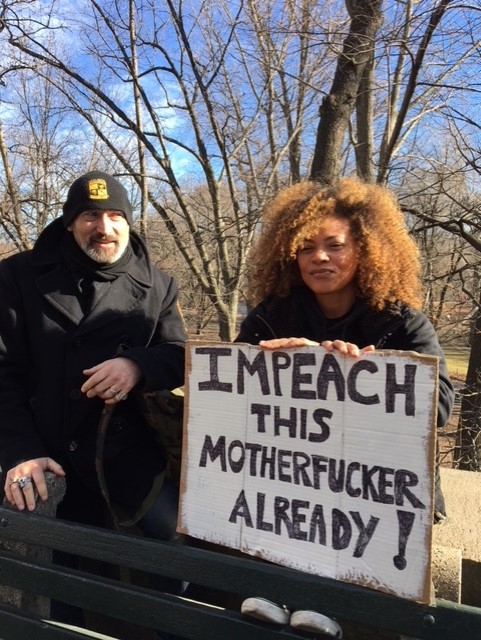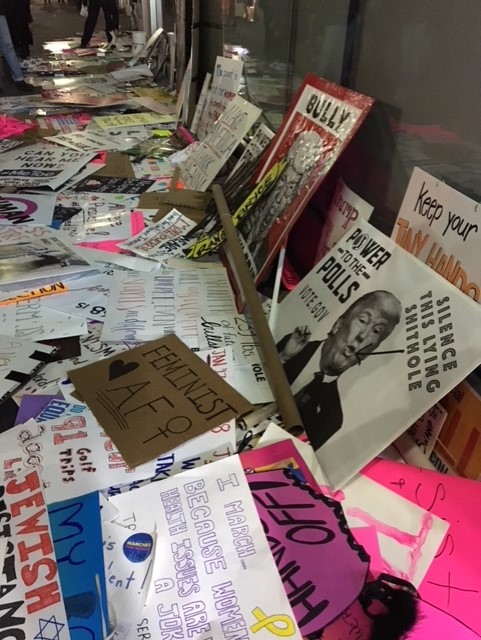Greil Marcus responds below to queries from Justyne Dillingham who asked Marcus to comment on (1) the motive behind Putin’s interference in the American election and (2) the “line” of certain leftists–writing in “publications like The Nation and The Intercept as well as mainstream outlets like The London Review of Books”—who claim Russia-gate is “a hoax made up by the intelligence agencies and pushed by Democrats to excuse their failure to win last November.”
Nation
Bench Press (A Protest Against One of Trump’s Worst Judicial Nominees)
Rev. Barber submitted the following letter to the Senate in opposition to the re-nomination of Thomas Farr to the Federal Judiciary. His words are suffused with felt knowledge of the past: “I have spent my whole life in North Carolina, and I know this nominee. I know what he’s done, what he stands for and just how detrimental he will be to the people of North Carolina and this nation if confirmed.” But he doesn’t ask the Senate to take his word for it. He provides facts and links that make his case undeniable.
Get Up!
Rev. Barber is a born preacher but he’s a master of other forms of rhetoric too. After you get your lift here, try his letter to Senator Grassley above.
Women’s March in NYC



My friend was holding a coffee from Joe’s. It was noon. I said I wanted coffee from the $2 place. We were on Columbus and 86th Street, heading for the march.
What Is It ‘Bout Men: Toward a More Nuanced Response to #MeToo
I confess I have very complex and conflicted feelings about #MeToo’s virtual movement.
“Gigi” in a Gay-Friendly Age
Every year produces a gay sensation, and you can tell a lot about the preoccupations of the day from the story it tells. The current candidate, on track to be a Best Picture nominee, is Call Me By Your Name, a gushy–or, if you prefer, alluring–tale of lust between a 17-year-old boy and a man in his mid 20s.
Multiculturalism Versus Identity Politics
Multiculturalism preceded identity politics and has become identified with it. I think it important to distinguish between the two, even oppose them.
The Shape of Things to Come
There are no excuses…forced, non-negotiated sexual encounters are repugnant. Promises of career advancement or threats of career derailment used as a weapon in a war of desire, are repugnant. All such behaviors are repugnant. What about lesser transgressions?
With Reservation
Wild River, recently available on pay-per-view, centers around the gang rape-murder of a young Native American woman on a Wyoming reservation.
Fox and Foes
Imagine that you are writing a book which opens with your central character, “a powerful, 6’2″, finely dressed man of proud stature and handsome face,” leaping “like a lion” from a bus to save a woman from two knife-wielding thugs. Imagine that, within the next page, you have further described your protagonist as “a musician, and artist… quick in mind and step… (with) an unusual grace of movement… magnetic charm,” and a “creamy” skinned Afro-American, bearing a “noteworthy resemblance” to Clark Gable.
Imagine that your book is a first-person narrative, whose central character is describing himself.
General Kelly’s Devolution
General Kelly is back in the news. He yesterday announced that he has no reason to apologize to Congresswoman Wilson, also that Robert E, Lee was a hero, since “It was always loyalty to state first back in those days.” This last pronouncement would have startled both the 115, 000 Southern whites who enlisted in the Union Army and their 180,000 or so black comrades, the vast majority of them southern, who also bore arms for the United States.